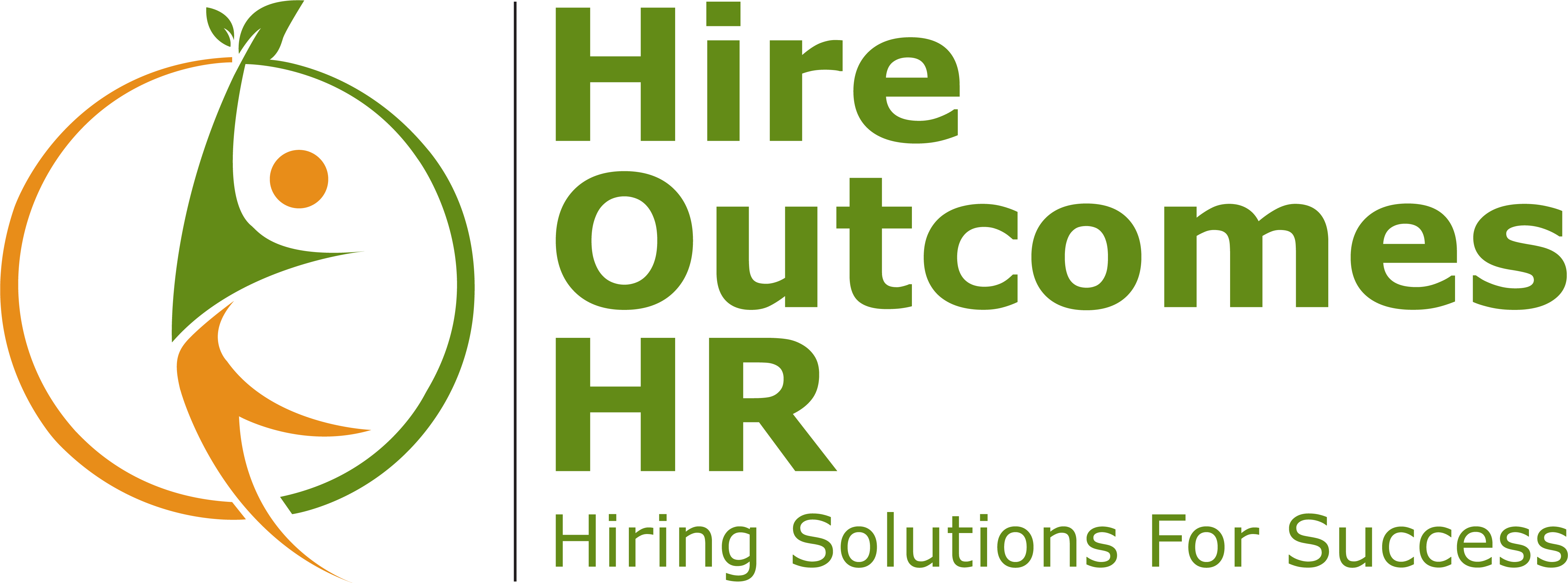Recruiting is harder for smaller organizations, but there are many things you can do about it. As a director or manager at a smaller healthcare organization, do you get the sense that recruiting is just plain harder at a smaller organization than a larger one? If you do, your intuition is absolutely right. Recruiting is harder at smaller organizations.
The proof is in a 2018 study conducted by Jobvite, one of the leading applicants tracking system (ATS) vendors. Jobvite analyzed recruiting performance at their customers and found big differences between large and small organizations.
At organizations with over 5,000 employees, Jobvite found that the average time to fill was 36 days. At organizations with less than 250 employees, it was 41 days. Organizations with 250-500 employees took an average of 40 days to fill a position. And at organization with 500-2,500 employees, it took 39 days on average.
Not only were smaller organizations slower at filling positions, they were also less efficient at recruiting, requiring a larger number of candidates to fill a position. The top-to-bottom conversion rate at large organizations was 0.48%, versus only 0.35% at organizations with less than 250 employees.
What’s going on here? Why is recruiting harder at smaller organizations? And more importantly, what can you do about it?
Why recruiting is less efficient at smaller organizations?
At Hire Outcomes HR, we work with organizations both big and small across a variety of industries. And we see a few distinct patterns.
Big organizations have recognized brand names. Remember the old saying, “Nobody gets fired for choosing IBM”? That kind of credibility in a brand name has a halo effect on the employer brand. People are drawn to brands they recognize. This is why Amazon gets tons of applicants, even though their pay tends to be below industry average.
Big organizations write better job descriptions. It’s true. At Hire Outcomes HR, we spend more time writing and editing job descriptions for smaller organizations than larger organizations. But it’s not because HR is smarter at a big organization; it’s because they’ve done it before. A late-stage startup, for example, might be hiring a marketing manager for the first time. A large hospital, on the other hand, has already hired thousands of department managers. A large hospital has the experience to know exactly what they need, and exactly how to communicate that in their job postings. Smaller organizations don’t have that experience.
Big organizations are better at screening candidates. The experience big organizations have in recruiting pays off in the screening process as well. As the Jobvite study proves, bigger organizations invite fewer candidates to interview (11.3% vs 14.1% of applicants), yet are more likely to make offers to the candidates they do interview (37.3% vs 23.0% of interviewees). Big organizations save time and money by screening candidates more effectively, and only interviewing the best qualified candidates.
Big organizations have specialized recruiting talent. According to a study by the Society for Human Resources Management, recruiting at smaller organizations tends to be done by an HR generalist – who, by definition as a generalist, is also doing onboarding and training, payroll, benefits, performance management, employee engagement…. Big organizations, on the other hand, have specialized, dedicated recruiters, and very often, specialized, dedicated sourcers as well. It’s not that HR at smaller organizations is less talented; it’s that they often don’t have the bandwidth to really focus on recruiting.
What smaller organizations can do to improve recruiting
If all this sounds discouraging, don’t give up hope! There are a number of actions that smaller organizations can take to greatly improve their recruiting.
Talk about the benefits of working at a smaller organization. Big organizations may have recognizable brand names, but they also have disadvantages – disadvantages that smaller organizations don’t have. Employees at smaller organizations often have greater responsibility, and are able to build diverse skill sets more quickly. There may be greater opportunities for advancement as the organization grows. And smaller organizations often have real, distinct cultures, instead of corporate conformity.
Whatever benefits are specific to your organization, identify them and create an employer value proposition. And be sure to communicate your value prop in your job posting!
Because it’s sometimes hard to see the culture you’re living in, it may be helpful to get an outsider’s opinion of what sets your company culture apart. Hire Outcomes HR! can help you develop a compelling employer value proposition.
Paint a candidate portrait. Why is a painting by Rembrandt considered a “portrait,” while the painting I made at last week’s “Wine and Paint” event considered, well, “trash”?
Rembrandt’s paintings are portraits because they capture an emotional depth, a sense of the human being behind the surface. Similarly, for recruiting, it’s not enough to just have a list of qualifications when you’re writing a job description. You need a portrait, a sense of the perfect candidate’s goals, motivations, and aspirations, and how she would fit in the position and your company. And once you have a candidate portrait, you need questions for your screener to ask to paint that portrait. It’s hard work, but it pays off with a higher conversion rate from interview to offer. As the name “candidate portrait” implies, there’s an art to painting a candidate portrait. If you’re stuck, Hire Outcomes HR can help you craft a candidate portrait.
Make recruiting a priority. HR at smaller organizations have a wide variety of responsibilities, but you can make a strong case to senior management that recruiting needs to be a top priority. Unemployment in 2019 is at 3.6%, the lowest level since 1969, making it a tough market for employers. But that 3.6% is an overall number. As any recruiter can tell you today, with record high unemployment due to the COVID-19 crisis, competition for talent in healthcare, engineering, and technology is still fierce.
Making recruiting a priority could mean adding a full-time recruiter to your headcount. Especially if your organization is growing, the time might be right to have greater specialization in your HR function. Another option could be shifting work away from HR, for example by giving department managers a greater responsibility for employee engagement. Or you may want to consider outsourcing functions such as payroll and benefits administration to outside vendors.
Finally, you might want to consider outsourcing a portion of your recruitment process to a specialized recruitment process outsourcing firm such as Hire Outcomes HR.
Your organizations can instantly benefit from the specialized recruiting skills offered by Hire Outcomes HR, without the time to develop those skills in-house. Moreover, with a wide range of experience working with different organizations, Hire Outcomes HR has firsthand knowledge of recruiting best practices, and how to implement them with proven processes. With Hire Outcomes HR’s experience, your organization can see results more quickly.
If cost is an issue, keep in mind that recruitment outsourcing often costs less than hiring a full-time recruiter. Hire Outcomes HR we use a unique hybrid recruiting model, with a U.S.-based account management and recruiting, combined with less costly overseas resources for back-office functions. It’s a proven model for cost management, but one that is challenging for smaller organizations to implement.
Costs can also be managed further with Hire Outcomes HR’s agile “on demand” service models, where you can get as much or as little help as you need, only when you need it.
To learn more about how recruitment process outsourcing can benefit your organization, give Hire Outcomes HR a call for a free initial consultation. We may be able to help.
About Hire Outcomes HR
Hire Outcomes HR is a woman-owned business founded in 2019 by Dhwani Rawal, a recruitment outsourcing executive with over 15 years experience placing entry-level and professional talent in a wide variety of industries, including healthcare, technology, and construction.
Hire Outcomes HR levels the playing field for human resources at smaller and mid-size organizations by providing the proven processes and technologies that big organizations use to source, recruit, and hire talent at lower cost and faster speed.
Learn more about Hire Outcomes HR, call us at 651-797-3479.



One response
Woah! I’m really loving the template/theme of this blog.
It’s simple, yet effective. A lot of times it’s very difficult to
get that “perfect balance” between superb usability and visual appeal.
I must say you have done a very good job with this. Additionally, the blog
loads super fast for me on Firefox. Excellent Blog!